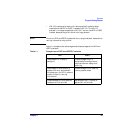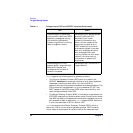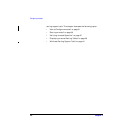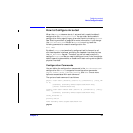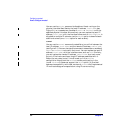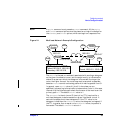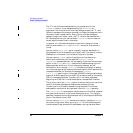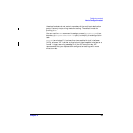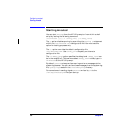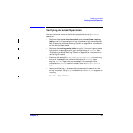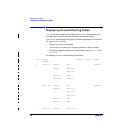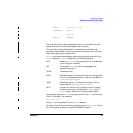
Configuring mrouted
How to Configure mrouted
Chapter 2 33
NOTE A phyint command must precede a tunnel command. All the phyint
and tunnel command options must be placed on a single line except for
the boundary and altnet options, which can begin on a separate line.
Figure 2-1 Multicast Network Example Configuration
The metric is the cost, or overhead, associated with sending a datagram
on the given interface or tunnel, and is used primarily to influence the
choice of routes over which the datagram is forwarded; the larger the
value, the higher the cost. You must keep metrics as small as possible,
because mrouted cannot route along paths with metrics greater than 31.
In general, use a metric value of 1 for all links unless you are
specifically attempting to force traffic to take another route. In this case,
the metric of the alternate path should be the sum of the metrics on the
primary path + 1. The default metric value is 1.
The threshold is the minimum IP time-to-live (TTL) required for a
multicast datagram to be forwarded to a given interface or tunnel. It
controls the scope of multicast datagrams. If the TTL value in the
datagram is less than the threshold value, the datagram is dropped; if
the TTL is greater than or equal to the threshold value, the packet is
forwarded. The default threshold value is 1.
Nonmulticast
Node
Node
mrouted
mrouted
phyint 193.3.3.3
193.3.3.3
193.3.4.5
195.5.5.5
Tunnel 193.3.4.5 195.5.5.5
Boundary 193.3.3.3/16
Tunnel 195.5.5.5 193.3.4.5
mrouted
195.5.6.7
Router
Router
Router
phyint 195.5.6.7
Node
mrouted
Router
Node



